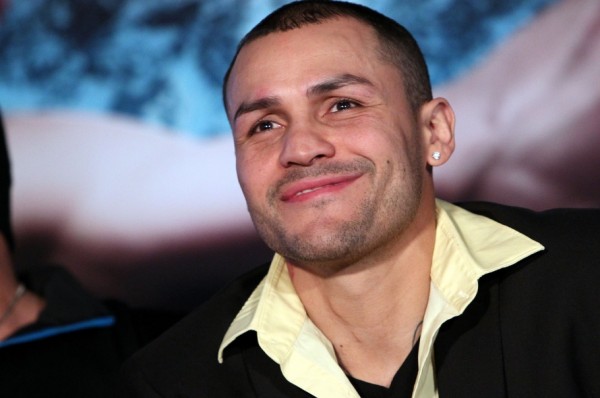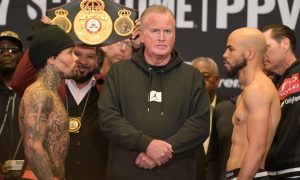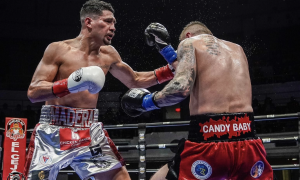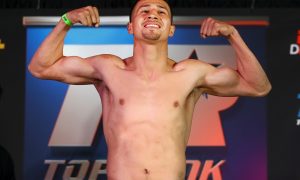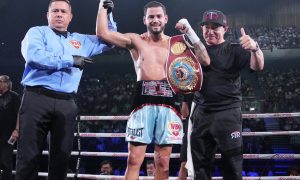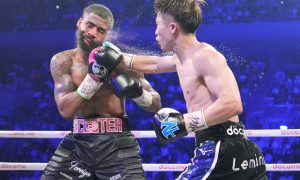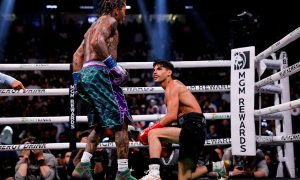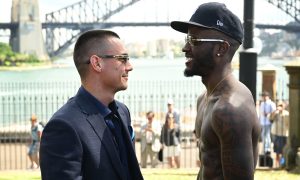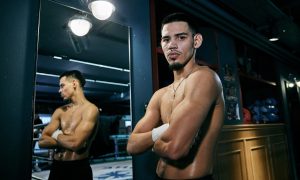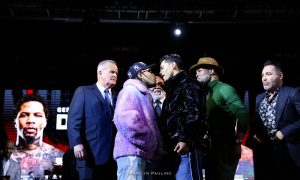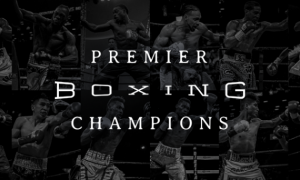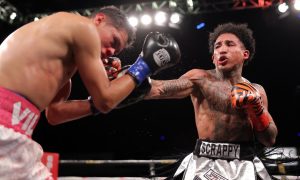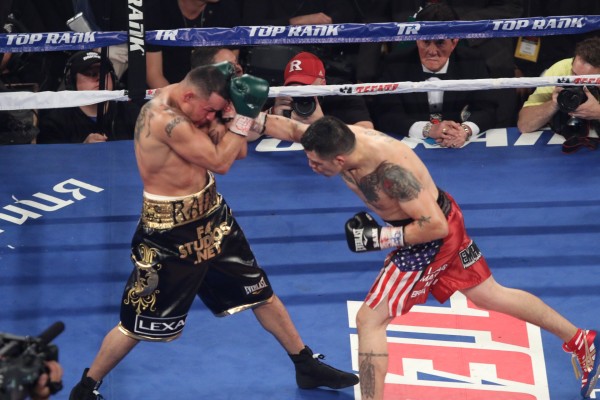 Photo by Jr. Barron/RBR Boxing
Photo by Jr. Barron/RBR Boxing
These days, many fighters have adopted the career management style of Floyd Mayweather and have begun to fight lesser opposition on a more frequent basis to either build a solid record, elongate a career, or to fill up some time between tough fights.
However, on the other side of the spectrum, there are the boxers who are too tough for their own good and who are too willing to fight the best on a consistent basis to have a long-lasting career.
Last night, Mike Alvarado lost via TKO in the third round to Brandon Rios in a fight that he was never in.
Alvarado withstood hooks and uppercuts in each round that he responded to with absolutely nothing.
Rios, to his credit, looked great–he moved his head, he went forward a bit smarter and he was in excellent shape.
Nevertheless, if we look back at Alvarado’s recent history, we may see why he took such a devastating loss in his hometown of Denver, Colorado and it stems from a lack of proper career management.
One reason, of course, is his trouble with the law, but we will focus on the consistent high-level opposition that Alvarado faced after his win over Rios in their second fight in 2013.
In what was his last hometown “comeback” for Alvarado, the warrior defended his recently-won WBO strap against a veritable monster in Ruslan Provodnikov.
The willingness to take such a tough fight after his win against Rios is a breath of fresh air in an era in which smart management can avoid good fights (Miguel Cotto’s unwillingness to fight Canelo Alvarez is our most recent example).
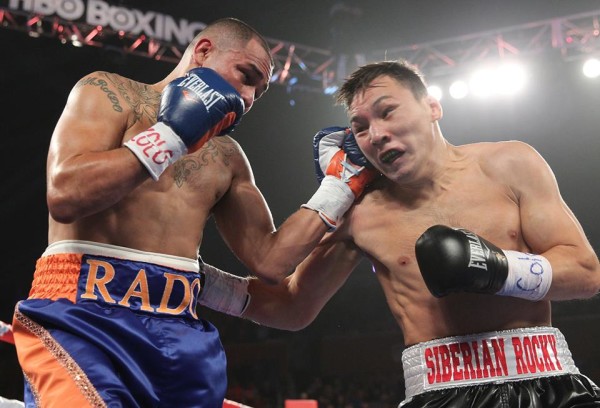 Photo by Chris Farina/Top Rank
Photo by Chris Farina/Top Rank
Alvarado deserves all the credit in the world for taking the fight. He did his best to keep Provodnikov off of him, but he eventually retired on his stool in Round 10.
Despite the loss, Alvarado looked good in the opening rounds. He confidently threw punches against a dangerous opponent until Round 8, when Alvarado was knocked down and realized that he could not keep Provodnikov away.
After the devastating loss to Provodnikov, Alvarado followed it up with another tough guy, the future Mexican hall of fame fighter, Juan Manuel Marquez.
As I sat ringside, I remember that Alvarado was a bit tentative in the earlier rounds. It seemed to be caused by the raucous pro-Marquez crowd of over 12,000 fans.
Alvarado would again lose via decision, but he did have his moment when he scored a knockdown over Marquez in the later rounds.
By that point, however, it was too little, too late.
Now, it seems, the problem was a bit more subtle: a lack of confidence. It’s a no-brainer that getting stopped will lead to a lack of confidence.
Boxers will tell you that they feel fine, that they can take on any opponent. That kind of mentality is what can make a fighter great.
However, sometimes you need a few tune-up fights after you’ve been stopped and before you’re thrown in with someone as tough as Rios for a third time.
The same formula that can build great fighter is not too different from the one the can make a good fighter come back. A fighter needs to build confidence on the way up just as he needs to build it on the way back after being stopped.
Also important is taking less damage. Had Alvarado done a few tune-ups between those tough fights, he might have had more in the tank going into the final chapter of this trilogy.
Alvarado is as manly as they come and blamed himself for his loss. The fans in the arena responded by booing him.
How can you dislike someone as honest as that? Where did he go wrong?
The problem, however, was the lack of better management. Good management will always be there when fickle fans boo you for taking tough fights on a consistent basis and being an absolute warrior in each one of them.
Hindsight, of course, is 20/20, and we can say all we want after the fact from our comfortable chairs as we watch the fights on HBO.
Nevertheless, if he does come back, one hopes that it’s done a bit smarter.
[yop_poll id=”115″]
Header photo by Chris Farina/Top Rank





